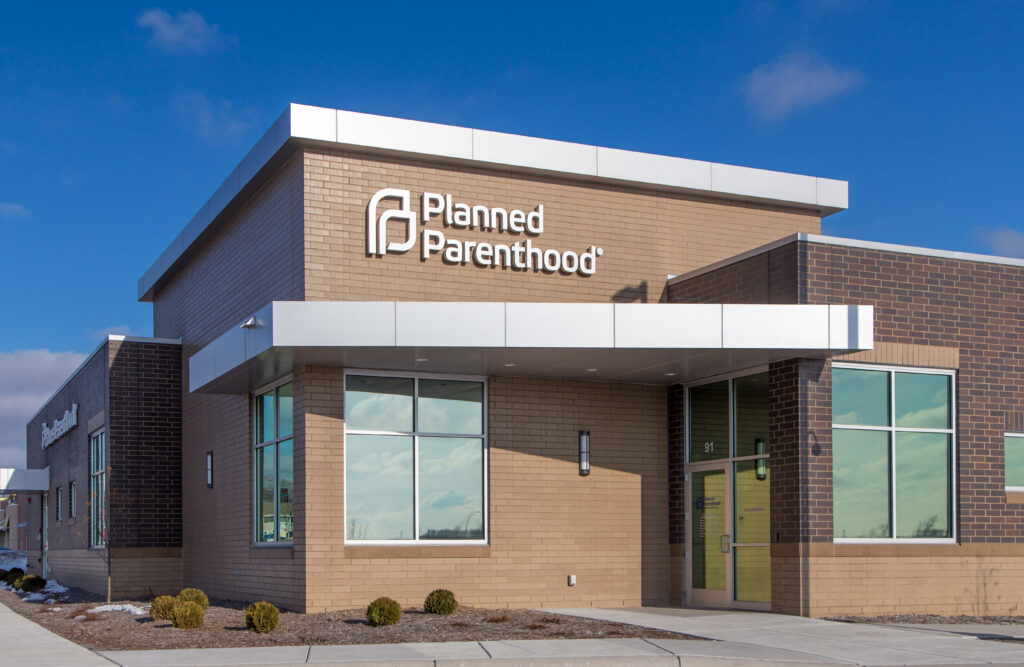March for Life Announces 2017 Theme: “The Power of One”

Last Thursday, the March for Life hosted a Capitol Hill policy briefing to announce their theme for 2017: “The Power of One.” The event also highlighted the importance of the Hyde Amendment, featuring Charlotte Lozier Institute (CLI) senior policy analyst, Genevieve Plaster, M.A. and CLI associate scholar, Michael J. New, Ph.D. who provided policy background and explained the law’s measurable impact over the past 40 years.
Jeanne Mancini, president of the March for Life, explained that “The Power of One” theme is meant to highlight “hope.” She explained, “This year, we sense that what our culture most needs is hope. Hope, and especially the impact that one person can have in building a culture of life.” Mancini then emphasized one person in particular, Congressman Henry Hyde of Illinois, who introduced the federal appropriations rider bearing his name that has largely prevented taxpayer-funding of abortion through Medicaid.
Not only this, but according to new research by CLI associate scholar, Michael New, Ph.D., more than two million lives have been saved by the Hyde Amendment. During the policy briefing, Dr. New explained the methodology behind his recently published study, “Hyde @ 40: Analyzing the Impact of the Hyde Amendment.” After examining more than 20 peer-reviewed studies that demonstrated a decline in abortion rates when the Hyde Amendment and other public funding limitations were enacted, Dr. New found that among the most methodologically rigorous of these studies, the average rate of decline in abortion rates was 1.52 per thousand women of child-bearing age. After applying this rate of decline to state-specific data, Dr. New calculated that approximately 2.13 million unborn children have been saved as a result of the Hyde Amendment. From another perspective, 60,000 lives each year have been saved by the Hyde Amendment. From yet another angle, Dr. New also found that in states that did not fund abortion through Medicaid, one in every nine children born under Medicaid owes his or her life to the Hyde Amendment.

Following Dr. New’s presentation, CLI’s Genevieve Plaster provided background information on the Hyde Amendment[1], which has been included with bipartisan support in every federal funding bill since 1976. Plaster pointed to a 2016 national poll by Marist that showed nearly 7 in 10 Americans oppose taxpayer-funding of abortion, including even 51 percent of Americans who self-identify as “pro-choice,” 44 percent of Democrats, and 58 percent of Millennials. Addressing concerns about low-income women’s “access to care,” Plaster shared that there are about 13,000 federally-funded community health centers that serve over 12 million Americans at or below the federal poverty line – with three million Ob/Gyn visits in 2014, two million pap tests performed, and half a million mammograms conducted.

Reflecting on the March for Life’s hopeful theme of the “Power of One,” Plaster concluded by sharing remarks from a keynote speaker at a recent pregnancy care center’s annual banquet as well as the story of a young woman:
[The keynote speaker] said, “‘When I asked women who have had an abortion, ‘Is there anything anyone could have done? What would you have needed in order to have had that child?’ I heard the same answer over and over: ‘I needed a friend. I felt so alone. I felt like I didn’t have a choice. If only one person had stood by me, even a stranger, I would have had that baby.’
…Claire, a young woman who experienced an unplanned pregnancy at age 17, said of her situation, “I felt hopeless and alone.” She explained that if Medicaid funding for an abortion had been available, it would have been tempting to go ahead and have that abortion. Instead, she reached out to an acquaintance for support, was accompanied to a pregnancy care center where she saw the first ultrasound of her son, and decided to continue her pregnancy. Now, a year later, Claire reflects: “I don’t know what I would do without him… That’s my baby.”
There was one person who was there for Claire. In her case, the Hyde Amendment’s restriction on taxpayer-funded elective abortion gave her pause to consider all of her options.
One initial friend supported Claire. One pregnancy care center was there to inform her what her growing child looked like. One Congressman, Representative Henry Hyde, has made a lasting impact with his policy that has saved over two million lives.
To read Ms. Plaster’s full remarks, please see the PDF here.
[1] See Consolidated Appropriations Act, 2016, Division H, Title V, Sec 506 to 507 (c), accessed at: http://docs.house.gov/billsthisweek/20151214/CPRT-114-HPRT-RU00-SAHR2029-AMNT1final.pdf

























